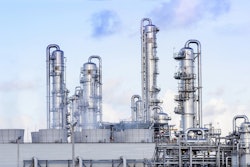Humans have long been searching for the fountain of youth, but scientists may have already found it — or at least something close to it. Rapamycin, a compound with medicinal properties, has found new life as a possible anti-aging drug. The cover story in Chemical & Engineering News (C&EN), the weekly newsmagazine of the American Chemical Society, takes a closer look at the compound to see if researchers have really found the secret to staying young.
Bethany Halford, a senior editor at C&EN, explains how rapamycin was isolated from bacteria discovered over 50 years ago on Easter Island. A few years after finding rapamycin, the laboratory where it was being studied shut down. Luckily, Suren Sehgal, a microbiologist studying the compound at the time, saved some of the bacteria in his freezer and found a new home for his research a few years later. Originally studied for its immunosuppressant and anti-cancer properties, scientists recently discovered that rapamycin may also be able to extend lifespan. In 2009, studies reported that mice fed rapamycin lived about 9 percent longer than mice that did not receive the drug. Now, scientists are starting to test this on larger mammals.
However, scientists don’t recommend rushing out for a rapamycin prescription just yet. Studies have not yet determined if the drug is safe for long-term use. Over a sustained period, it can suppress the immune system, which could lead to infection. Still, scientists are working to tweak the drug and are optimistic about its future.






















